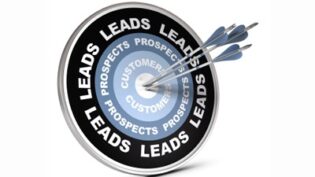
We would like to start advertising our company on Google and would like to know what the best way is to do so in terms of price and what steps to take.
Answer: There are two basic approaches to advertising on Google – Google advertising programs and general search engine optimization tools. AdWords and AdSense may be the two more common advertising programs, but you can review all of Google’s business advertising programs on the following website:
AdWords: Google’s text-based system for advertising on its site and its partner sites is called AdWords. The service allows you to create your own ads, choose keywords to help match your ads to your audience, and control the cost of your advertising—you pay only when people click on your ad (a cost per click plan). Anyone wishing to promote a product on Google can enroll in this program.
We also recommend that you access all of the resources available on Google regarding their AdWord program. There are numerous books and videos on Google AdWord strategies available in bookstores and online. You can locate the Google AdWord and other keyword information and tools at websites like the following:
AdSense: You can review information on AdSense through the following websites:
Search engine optimization: Higher search engine rankings take time to develop and there is no technique, short of paying for a higher search listing, that will produce quick results. Google, Bing, and other search engines have varying selection criteria and will give higher listings to companies that advertise on their sites. But every business has to assess its target audience and how much of its marketing budget will be spent on website marketing versus print, on-site signage, Yellow Pages, and other types of marketing.
Keywords, viral marketing, and other inexpensive tools can be used to drive website traffic. The best website marketing tools vary by website based on their purpose (e-commerce, business information, networking, blog, etc), target audience, geographic trade area, and other factors. You can review example industry discussions on marketing tools at websites like the following:
- 31 Ways to Drive Traffic to Your Business Website: about.com
- Generate Website Traffic Using Evolution: trafficeradicator.com
- 75 Ways to Increase Your Site’s Traffic: supperbloggingtips.com
- Six Simple Principles of Viral Marketing: wilsonweb.com
Search Engine Optimization, keywords, banner ads, social networking websites, and blogs are the most common internet marketing tools and methods of driving more traffic to websites. However, the type of website marketing that will be most effective for your business will require analysis and experimentation. In order to determine the most cost effective strategy, reach out to a defined target audience and geographic sales trade area who are interested in your particular products or services.
Website marketing has gotten much more complex as the Internet has matured. Search engines now look for the quality of your content, how closely it pertains to keywords, how long the site has been around, and other factors. In addition, there are Yellow Pages and other online phone directories just like printed directories. The following are search engine optimization (SEO) information and other website marketing suggestions to consider, including geographic and niche market SEO tools:
1. Search engine optimization is the process of achieving top rankings on a search engine site for relevant search terms. The most relevant search terms, which are those that you want to rank highly for, are the phrases that potential customers are most likely to type into a search engine to determine a website’s product or service offerings. Search engine optimization targets these search terms.
There are no secrets to search engine optimization, just ranking and promotion methodologies to follow in order to beat your competitors in obtaining a higher ranking for certain search terms. To develop an understanding of search engine optimization techniques, you can review considerable SEO information, tips and suggestions with an Internet search. The following are example websites:
SEO information and resources:
- How Does Search Engine Optimization Work? about.com
- Search Engine Optimization Basics – Keywords: searchengineguide.com
- Search Engine Optimization Basics Part 2 – Title Tags: searchengineguide.com
- Search Engine Optimization – A 10 Step Program: netmechanic.com
- How to Properly Promote Your Site: selfpromotion.com
- Search Engine Watch: searchenginewatch.com
You can locate discussions on how to make the first page of search engine results at industry websites like the following:
- How to Get Your Website to the First Page of Google Search Results: ehow.com
- Get to the First Page of Google: 4 Essentials of Ranking a LinkLess Small Business Website: convertoffline.com
2. Keywords/AdWords and similar methods require trial and testing, but here is some industry information and suggestions for these tools:
- Keyword Tool External: adwords.google.com
- Keyword Density Analysis Tool: seochat.com
- Wordtracker’s Free Keyword Tool and Training Videos: wordtracker.com
- SEO Book Keyword Tool: seobook.com
- Keyword Research Tool: wordtracker.com
Place meta tags:
3. Increase traffic by using various services such as:
4. There are numerous popular search engines and directories on the Internet. Below you will find a list of links to several popular search engines and links to information and forms on their sites to assist you in submitting your website address (URL).
- Bing: bing.com
- Submit Your Site to Bing: bing.com
- Google: google.com
- Submit Your Content to Google: google.com
- How to Suggest a Site to the Open Directory: dmoz.org
Search engine registration is often free, but you can review an example list of fees at the following website:
3169 Views














